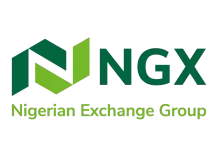The benchmark index of the Nigerian Exchange rebounded on Friday to close the year 2021 higher in the aftermath if window dressing and last-minute portfolio repositioning ahead of the 2021 year-end financials and Q1 2022 earnings reporting season. These will be preceded by the unaudited Q4 2021 results in the coming weeks.
It is obvious that the nation’s equity market had mixed performance and trend to close positive in the midst of many factors that influenced the market positively or negatively. This was despite the wealth created for discerning players that invested intelligently on the strength of INVESTDATA investment education and stock picks.
It is noteworthy that the Investdata 2021 10 Golden Stocks outperformed the NGX composite index, gaining 50.31%, compared to the NGX All Share index that returned 6.07% in 2021.
The Golden Stocks for 2021, are Zenith Bank, Access Bank, Guaranty Trust Company (previously Guaranty Trust Bank), MTN Nigeria, May & Baker, Dangote Cement, Livestock, Vitafoam, Lafarge Africa, and United Capital. They have all yielded positive returns within the period, except for GTCO that lost 21.73 percent, closing at N26 on Friday, from N33.22 each on December 4, 2020. Within the period, however, it touched a high of N36 per share.
| 10 Golden Stocks Performance in 2021 | ||||
| Securities | Buy Price as @ Dec 4, 2020 | Highest Price | Price as@ Dec 31 | Returns |
| Zenith Bank | 23.28 | 27.15 | 25.15 | 8.03 |
| Access Bank | 8.20 | 11.82 | 9.30 | 13.41 |
| GTCO | 33.22 | 36.00 | 26.00 | -21.73 |
| MTNN | 155.00 | 209.90 | 197.00 | 27.10 |
| May/Baker | 3.45 | 5.18 | 4.02 | 16.52 |
| Dangote Cem | 197.50 | 280.00 | 257.00 | 30.13 |
| Livestock | 1.28 | 3.08 | 2.15 | 67.97 |
| Vitafoam | 6.79 | 19.00 | 22.50 | 231.37 |
| Wapco | 23.44 | 31.50 | 23.95 | 2.18 |
| Ucap | 4.34 | 9.90 | 9.90 | 128.11 |
| 503.08 | ||||
| Average Return of 50.31% | ||||
The best of the pack for investors and traders was Vitafoam Nigeria, which returned 231.37 percent, closing at N22.50 from N6.79 per share; followed by United Capital’s 128.11 percent from N4.34 on December 4, 2020, to N9.90 each on December 31, 2021.
Within the period it reached a peak of N10 per share; while Livestock Feeds closed the period 67.97 percent up, rising from N1.28 to N2.15 each. Dangote Cement followed with 30.13 percent at N257 each, from N197.50, helped also by the ongoing share buyback scheme embarked on some years ago and impressive corporate earnings, among others.
Investors in MTNN recorded 27.10 percent capital appreciation after its price climbed to N197 each from N155 on the back of improved sentiments for telecommunication sector stocks arising from impressive earnings, primary market by way of offer for sale, payment banking service license from CBN and its recent emergence as the highest bidder of G5 network technology, among others.
May & Baker yielded 16.52% for the period, closing at N4.02 from N3.45 on improved numbers, and various fiscal and monetary policy incentives in response to the ravaging COVID-19 pandemic, within the period; while Access Bank returned 13.41 percent at N9.30, from N8.20, after attaining N11.82 peak. Zenith Bank could only muster 8.03 percent returns within the period; ahead of the 2.18 percent by Lafarge Africa.
Trading sentiment and momentum in any market comes with the understanding of market structure along with using fundamental and technical analysis to know how the market is positioned, because it goes a long way in determining how the market will react to certain events or news.
These are very important because price discovery in equity investment is a function of short and long-term market activities at any time. This, Investdata has used all along and emphasized to guide trading decision by investors and traders.
The nation’s political environment and governances have been influenced by insecurity and COVID-19 had slow down government and economic activities despite the huge amount so far budgeted for security budget over the years.
Already, also, President Muhammadu Buhari has signed the 2021 Appropriation Bill into law on the 31st of December, 2020. The expenditure of ₦13.59 Trillion was 4% higher than the initial ₦13.08 Trillion presented to the National Assembly (NASS) on Oct 2020. The budget was based on the revenue assumption of 1.86 million barrels of Crude Oil per day at $40 per barrel and an exchange rate of ₦360/$.
However, with the need to increase the number of vaccinated citizens against the backdrop of the rise in Covid-19 cases and the quest to curtail the rising rate of insecurities in the country, the president approved a supplementary budget of ₦982.73 billion.
The budget is estimated at ₦17 trillion, 25.09% higher than the ₦13.59 trillion appropriated in 2021. The 2022 budget was based on an exchange rate of ₦410.15/$ (vs ₦379/$ for 2021), 1.88mbpd oil production at $57pb (vs 1.86mbpd oil production at $40pb), GDP target of 4.20% and an inflation target of 13.00%.
However, revenue is projected at 20%, or ₦10.13 trillion, translating to expected budget deficit increase of 14.4%, compared to the 2021 budget deficit of ₦6.26 trillion.
The budget deficit is to be financed by borrowings from domestic sources (₦2.51 trillion), foreign sources (₦2.51 trillion), multi-lateral/bi-lateral loans (₦1.16 trillion), and Privatization proceeds (₦90.7 billion).
Meanwhile, looking at the budget deficit of ₦6.26 trillion, 3.39% of the nation’s GDP and 0.39% above the threshold of 3%, we believe that the government needs to expand its revenue base by taxing the informal sector and reviewing excise duties on certain goods.
On August 16, 2021, the long-awaited Petroleum Industry Bill (PIB) was finally signed into law by President Muhammadu Buhari (now Petroleum Industry Act) to end nearly two decades of political gymnastics on the bill.
To put it in context, the PIB is the omnibus legislation aimed at repositioning the Nigerian oil & gas industry through far-reaching reforms in four key areas of Governance, Administration, Host Communities Welfare, and Fiscal Provision.
Despite being Nigeria’s leading source of FX earnings (c.90.0% of export earnings) and the largest source of FG’s revenue (c.58.0%), the oil & gas industry in Nigeria is still largely governed by the outdated Petroleum Profit Tax (PPT) Act of 1959 and the Petroleum Act of 1969.
The PIA, however, signified the end of the Department of Petroleum Resource (DPR), Petroleum Products Pricing Regulatory Agency (PPPRA) and the Petroleum Equalization Fund (PEF), while the Midstream and Downstream Petroleum Regulatory Authority, Upstream Regulatory Commission was inaugurated.
Nigeria’s economy sustained its expansion during the year, with GDP growing in real-term by 4.03% at the end of Q3’2021, sustaining recovery in four consecutive quarters. The Non-Oil component of the GDP expanded by 5.44%, compared to the 6.74% expansion in Q2’2021.
This was impacted by the 8.41% and 2.28% slow growth in the Services and Agricultural Sectors respectively, compared to the 9.27% and 1.30% expansion each in Q2’2021. However, the decline could be attributed to the high rate of insecurity, the hike in electricity tariffs, and the attendant increased cost of doing business in Nigeria.
However, the Oil component of the GDP contracted by 10.73%, compared to the 12.65% drop in Q2’2022 despite the 7.4% increase in the average crude oil (Bonny Light) price to $73.84/barrel.
The sectoral contribution to the real GDP by Services, Agriculture and Industries was 49.65%, 29.94% and 20.41% respectively in Q3’2021, compared to 55.66%, 23.78% and 20.57%, respectively in Q2’2021. This implies that only the Agriculture sector had a positive contribution to the real GDP during the quarter.
The consumer price index moderated in 2021 according the Naional Bureau of Statistics on a base effect, as Inflation rate for November 2021 stood at 15.44% to record the lowest in 12 months.
The Core Inflation has been consistently rising in 2021, following the twin effects of the Naira devaluation in 2020 and electricity tariff hike that drastically affected the price of many Non-farm produce and imported goods.
Food inflation stood at 17.21% in Nov’2021, compared to 18.30% in Nov’2020, representing eight consecutive months of decline in the food inflation rate. This was driven by the base effect, harvest season, and various CBN interventions in the agricultural sector.
Aggregately, the Headline inflation has been increasing at a slow rate from the beginning of Q2’2021, as a result of the base year effect of 2020 when the economy began to feel the impact of the Covid-19 pandemic.
The CBN Monetary policy committee, in it’s bid to driving economy recovery and expansion to create job and price stability, had decided to retain the Monetary Policy Rate(MPR) at 11.5%, throughout the year 2021 compared to other EMDEs nations tightening up their respective rates.
The MPC decisions follow the bid for a stable economic recovery from the impact of Covid-19 pandemic, as the GDP expanded by 4.03% and 5.01% in Q3’2021 and Q2’2021, respectively.
Just as recovery in oil price above its pre-pandemic levels in February 2021 have supported the nation economic recovery and growth recorded in the year, the global benchmark price, rose to a seven-year high (USD86.40/bbl) in October. Overall, the Brent crude price increased by 48.2% YTD to USD76.56/barrel as of 31st December.
The price rally was impacted by the increase in demand due to the impressive vaccine administration in western countries, sustained restriction on production by OPEC+, shortfalls in output in the US and other non-OPEC producers, and the increased use of crude oil as a substitute for natural gas – owing to higher gas prices – for petrochemicals, as well as heating fuel and electricity generation, which supported the rally in oil prices.
Article composed by: Ambrose Omordion, CRO|Investdata Consulting Ltd





